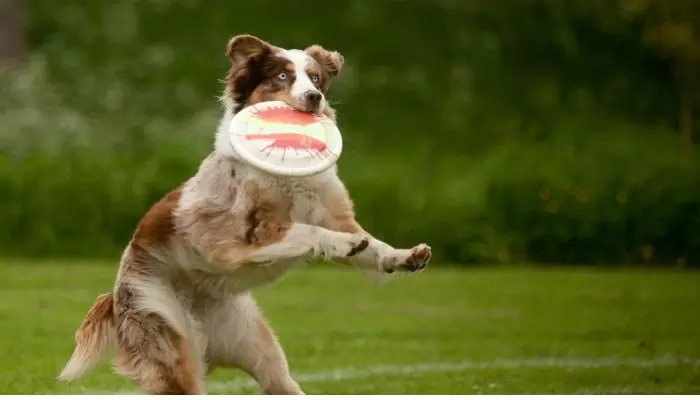Table of Contents
Many dog lovers asked How to Stop a Dog from Jumping on You? In this blog post find the step by step guide.

Dogs jump for a variety of reasons, but the most common is excitement. If your dog is jumping on you, it’s likely because he wants your attention or is seeking affection. Dogs also jump out of excitement or playfulness. While jumping may be cute when your dog is small, it can become problematic as he grows bigger and starts to jump on people more frequently. Fortunately, there are a few things you can do to stop your dog from jumping on you.
First lets find the reason why do dog jump on you
Why Does a Dog Jump On You?
There can be many reasons why a dog jumps on you. Some of the most common reasons are that the dog is trying to get attention, seeking approval, or is excited and happy to see the person. Dogs may also jump on you as a way of asking you to play or wanting to be petted.
In some cases, a dog may jump on you because it is trying to assert dominance or show aggression. If a dog jumps on you and growls or snaps at you, it is important to be very careful and avoid getting bitten. In most cases, however, jumping is simply a sign of excitement or affection and should not be taken too seriously.
Lets find the solution how to stop How to Stop a Dog Jumping on You.
Step 1.
The first step on how to stop dog jumping on you is to establish yourself as the pack leader. Dogs are social creatures and look to their pack leader for guidance on what they should and shouldn’t do. As the pack leader, you need to be firm and consistent with your commands. Whenever the dog jumps, turn your back on him and walk away. This will show him that his jumping behavior is not acceptable.
Step 2.
Once the dog stops jumping, reward him with a treat or petting. This will reinforce the positive behavior and help the dog learn that he will be rewarded when he doesn’t jump. If the dog continues to jump, put him in a time-out or “doggie jail.” This will show him that there are consequences for his actions. Be consistent with your commands and rewards, and eventually the dog will learn that jumping is not an acceptable behavior.
Conclusion:
Dogs jump for a variety of reasons, but the most common is excitement. If your dog is jumping on you, it’s likely because he wants your attention or is seeking affection. Dogs also jump out of excitement or playfulness. While jumping may be cute when your dog is small, it can become problematic as he grows bigger and starts to jump on people more frequently. Fortunately, there are a few things you can do to stop your dog from jumping on you. By establishing yourself as the pack leader and being consistent with your commands and rewards, you can train your dog not to jump on you or others.
FAQ
Q: why does dog jump on you means?
Answer: When your dog jumps on you, they are showing excitement and trying to get closer to your face because they want to kiss you. Dogs jump on people as a sign of affection, as well as begging for attention or food. If you train your dog not to jump on people, they can still show their love in other ways such as licking your face or wagging their tail. Dogs have been known to jump on people since ancient times, and it’s a behavior that is still seen in many dogs today. Some experts believe that jumping up is a dogs way of imitating human behavior, since we often pick them up or hug them when we greet them. Whatever the reason behind it, jumping up is a canine instinct that has
Next Read : Some dog lazy to jump high
